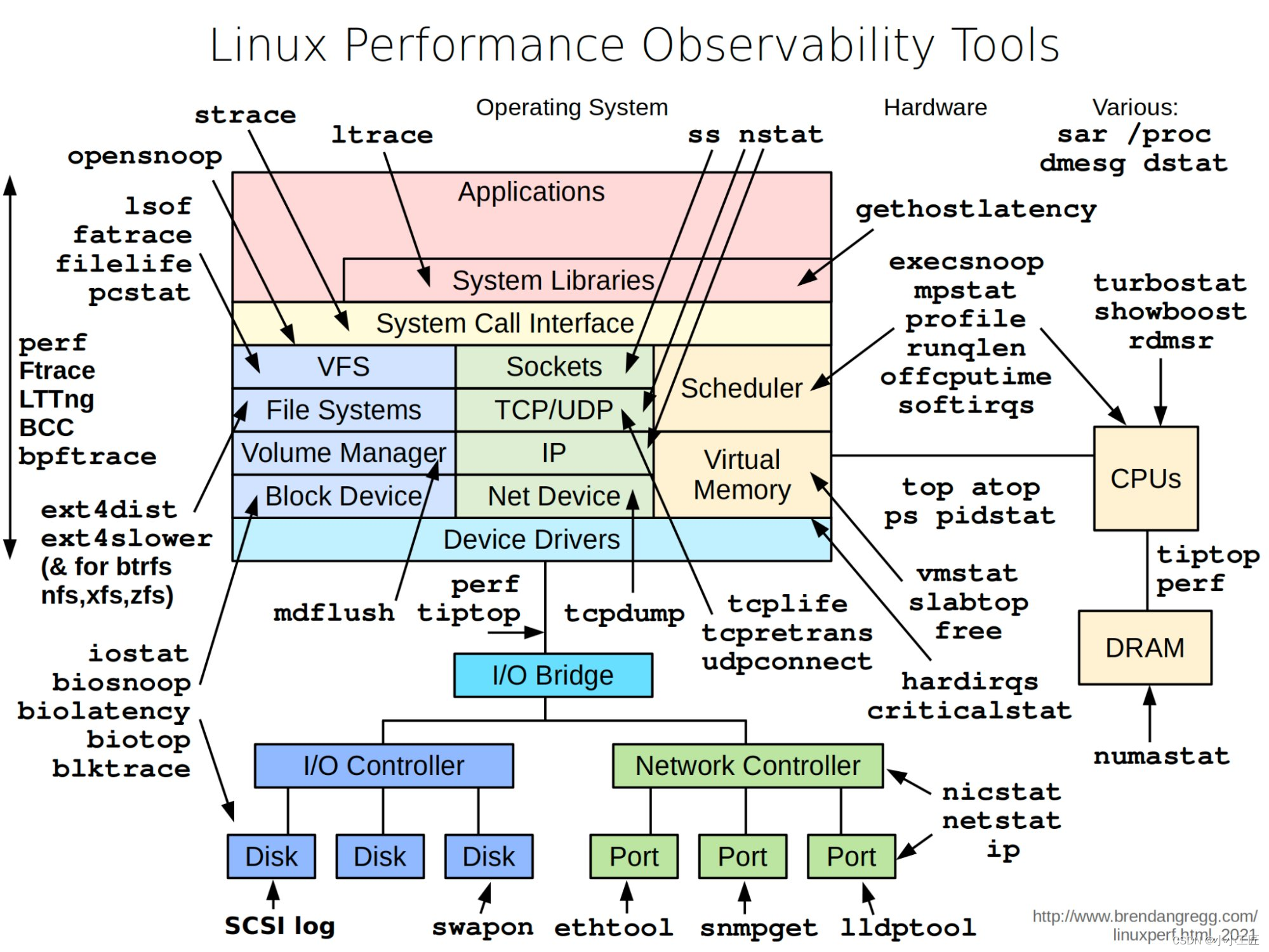Article directory
Commonly used Linux performance observability tools
Here are some commonly used Linux performance observability tools:
-
top : Displays real-time system performance data, including CPU usage, memory usage, process information, etc.
-
htop : Similar to top, but provides more interactive features and more detailed information.
-
vmstat : Reports information about processes, memory, paging, block I/O, traps, and CPU activity.
-
iostat : Reports a system's CPU and disk input/output statistics to help identify disk performance issues.
-
sar : Collect and report various performance data of the system, such as CPU, memory, disk, network, etc., which can be used to generate performance reports.
-
nmon : Provides real-time system performance monitoring, including CPU, memory, disk, network and file system, etc.
-
strace : Tracing system calls and signals of a process for debugging and performance analysis.
-
dstat : Displays detailed information about system resource usage, including CPU, memory, disk, network, and system load.
-
netstat : Displays network statistics related to IP, TCP, UDP and ICMP protocols for network troubleshooting and monitoring.
-
lsof : Lists open files and processes on the current system, helping to find file locking and resource leak problems.
-
iftop : Monitors network traffic in real time, showing active network connections and bandwidth usage.
-
pidstat : Monitors the utilization of system resources (such as CPU, memory, disk IO, etc.), especially suitable for analyzing process-level performance issues.
-
perf : Linux performance event tool for advanced performance analysis and tuning, enabling deeper performance research.
Illustration

——————————————
summary
These tools can help system administrators and developers monitor and analyze the performance of Linux systems so that problems can be identified and resolved in a timely manner. Select appropriate tools for performance analysis and optimization based on specific needs and problems.